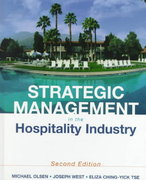Question
Known primarily for its power tools, Chevron is one of the world's older multinational corporations. CHERVON's Power Tool business unit rapidly developed into a full-fledged
Known primarily for its power tools, Chevron is one of the world's older multinational corporations. CHERVON's Power Tool business unit rapidly developed into a full-fledged value chain that includes R&D, sourcing, manufacturing, testing, marketing, sales & distribution and after-sales service. It is now one of the global leaders in the power tool industry. The company grew rapidly during the 1950s and 1960s due to its strong brand name and near-monopoly share of the consumer and professional power tools markets. This monopoly was based on Chevron's pioneering development of handheld power tools. It was during this period that Chevron expanded rapidly in international markets, typically by setting up wholly-owned subsidiaries in a nation and giving them the right to develop, manufacture, and market the company's power tools. In its 1979 annual report, the company described how "In order to be effective in the marketplace, Chevron follows a decentralized organizational approach. All business functions (marketing, engineering, manufacturing, etc.) are kept as close as possible to the market to be served. By the mid-1980s, however, this structure was starting to become untenable. New competitors had emerged in the power tool business, including Bosch, Makita, and Panasonic. As a result, Chevron's monopoly position had eroded. Throughout the 1980s, factories were closed and the company consolidated production in fewer, more efficient production facilities. This process was particularly evident in Europe, as the company noted in its 1985 annual report, "Globalization remains a key strategic objective. In 1985, sound progress was made in designing and marketing products for a worldwide market, rather than just regional ones. Focused design centers will ensure a greater number of global products for the future. Global purchasing programs have been established, and cost benefits are being realized. During this period, while the company maintained a number of design centers, it cut the number of basic R&D centers from eight to just two. The autonomy of individual factories also started to decrease. The factories that remained after the round of closures had to compete with each other for the right to produce a product for the world market. Major decisions about where to produce products to serve world markets were now being made by the managers at the corporate headquarters. Increasingly, the design and R&D centers in the United States and Britain took on responsibility for new product development for the global market. Throughout the early 2000s, successively larger shares of production were allocated to factories in just three nations, China, Mexico, and the Czech Republic, and in its 2004 annual report, Chevron indicated that this process was likely to continue.
1. How would you characterize the international business strategy that Chevron pursued before 1980 in the developed world, explain? .....................................WL-50 Marks-3
2. How would you characterize the international business strategy that Chevron has been pursuing since the mid-1980s, explain? ..................................................WL-50 Marks-3
Step by Step Solution
There are 3 Steps involved in it
Step: 1

Get Instant Access to Expert-Tailored Solutions
See step-by-step solutions with expert insights and AI powered tools for academic success
Step: 2

Step: 3

Ace Your Homework with AI
Get the answers you need in no time with our AI-driven, step-by-step assistance
Get Started


